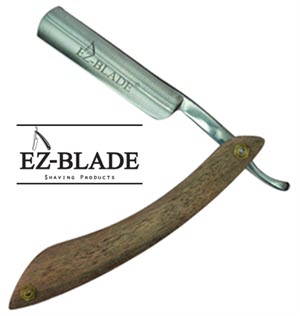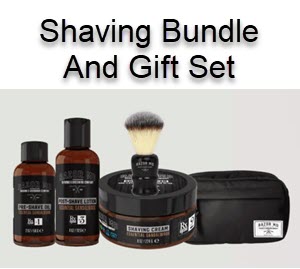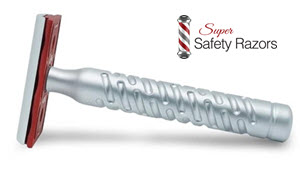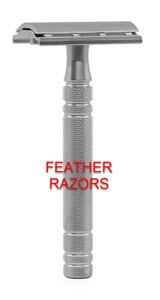Unlock Shine: The Ultimate Hydrating Cleansing Conditioner
The Revolutionary Approach to Hair Care: Exploring the Benefits of Cleansing Conditioners
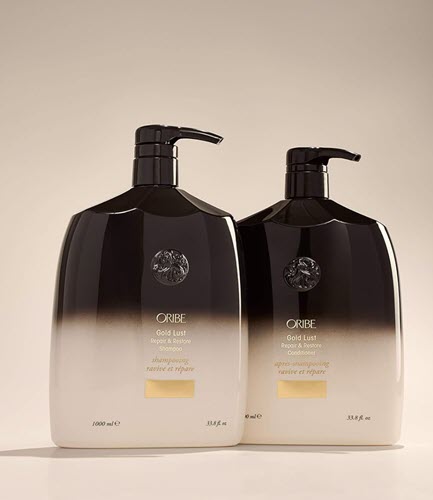
In recent years, the beauty and hair care industry has shifted towards more holistic and health-conscious practices. Among these, the emergence of cleansing conditioners represents a transformative approach to hair maintenance, blending conditioners’ nurturing aspects with shampoos’ cleansing power. This innovative product caters to a broad spectrum of hair care needs and preferences, departing from traditional hair cleansing methods. Here, we delve into the myriad benefits of cleansing conditioners, illuminating why they have become a cornerstone for those seeking optimal hair health and simplified routines.
Gentle Cleansing Without Stripping Natural Oils
One of the paramount advantages of cleansing conditioners is their ability to gently cleanse the hair and scalp without stripping away natural oils. Traditional shampoos can sometimes be harsh, removing essential moisture and leaving hair dry and brittle. Cleansing conditioners maintain the hair’s natural hydration balance, promoting a healthier scalp and lustrous locks. This gentle cleansing action is especially beneficial for individuals with dry, curly, or oily hair types, where moisture retention is crucial for maintaining definition and elasticity.
The Allure of Co-Washing
The concept of “co-washing” or conditioner-only washing has gained traction among hair care enthusiasts, particularly those with textured hair. Cleansing conditioners are at the heart of this practice, offering a viable alternative to the frequent use of harsh shampoos. By co-washing, individuals can achieve clean, hydrated hair with enhanced manageability and reduced frizz, making it an attractive option for maintaining the vitality of curly and wavy hair textures.
Streamlining Hair Care Routines
Efficiency and simplicity in hair care routines are increasingly valued in our fast-paced world. Cleansing conditioners present a two-in-one solution that saves time and reduces the clutter of multiple products. Consolidating the cleansing and conditioning steps into one product simplifies hair care and is cost-effective in the long run.
Embracing Natural and Gentle Formulations
As awareness grows about the potential impact of certain chemicals in hair care products, more consumers are gravitating towards natural and gentle alternatives. Cleansing conditioners often feature formulations free from sulfates, parabens, and silicones, appealing to those seeking to minimize exposure to harsh chemicals. Moreover, including natural oils, butter, and botanical extracts in these products can provide additional nourishment and protection to the hair.
Eco-Friendly and Sustainable Choices
The environmental footprint of our beauty routines is becoming an increasingly important consideration. Due to their dual functionality, cleansing conditioners offer a more sustainable option. Reducing the number of products in our hair care regimen minimizes waste and lessens the demand for plastic packaging and the overall environmental impact.
Cleansing conditioners represent a paradigm shift in hair care, offering a multifaceted solution that caters to today’s consumers’ diverse needs and preferences. Whether driven by the desire for healthier hair, the need for a simplified routine, or the pursuit of eco-conscious choices, the benefits of cleansing conditioners are undeniable. As this trend continues to evolve, it underscores a broader movement towards mindful and sustainable beauty practices, reinforcing the importance of choosing products that are kind to our hair and the planet.
Unlocking the Secrets of Cleansing Conditioners: The Power of Key Ingredients
Cleansing conditioners have transformed how we think about hair care, merging the cleansing prowess of shampoos with the nourishing benefits of conditioners. At the heart of their effectiveness lies a carefully curated blend of ingredients, each serving a unique purpose. From natural oils and botanical extracts to innovative conditioning agents, understanding the role of these components can empower you to select the ideal product for your hair’s specific needs. Let’s dive into the benefits of some of these essential ingredients and how they contribute to your hair’s overall health and appearance.
Natural Oils: Hydration Heroes
Natural oils are a cornerstone of many cleansing conditioners, revered for their ability to moisturize and seal in hydration. Oils such as coconut, argan, and jojoba closely mimic the natural oils produced by the scalp, making them exceptionally effective at restoring moisture to dry strands and preventing further moisture loss. These oils can also add shine, reduce frizz, and improve manageability, making them invaluable for those with curly or coarse hair types.
Botanical Extracts: Nature’s Nourishment
Botanical extracts bring the power of nature into your hair care routine, offering a range of benefits tailored to different hair concerns. Ingredients like aloe vera and tea tree oil can soothe the scalp and relieve irritation, while lavender and peppermint can stimulate circulation for a healthier scalp environment. Green tea extract, rich in antioxidants, helps protect hair from environmental damage, and chamomile can enhance natural highlights and brightness.
Conditioning Agents: Detangling and Smoothing Saviors
Conditioning agents in cleansing conditioners work to detangle, smooth, and soften hair, making it easier to manage while minimizing breakage. Behentrimonium chloride, cetyl, and stearyl alcohol are common ingredients known for their conditioning properties. These agents help to smooth the hair’s cuticle layer, reducing knots and snarls and leaving hair feeling silky and manageable. They also contribute to the overall health of the hair by preventing damage during styling and combing.
Specialized Ingredients for Scalp Health
A healthy scalp is the foundation of healthy hair, and cleansing conditioners often include ingredients specifically targeted at maintaining scalp health. Salicylic acid, for example, can help to gently exfoliate the scalp, removing dead skin cells and preventing dandruff. Tea tree oil has natural antibacterial and antifungal properties, effectively combating scalp conditions such as seborrheic dermatitis. Ingredients like panthenol (vitamin B5) can also hydrate the scalp, preventing dryness and irritation.
The diverse array of ingredients in cleansing conditioners offers a tailored approach to hair care, addressing a wide range of needs, from moisture and nourishment to detangling and scalp health. You can make informed choices about your products by understanding the benefits of natural oils, botanical extracts, conditioning agents, and specialized scalp care ingredients. This knowledge enables you to select a cleansing conditioner that aligns with your hair type, concerns, and goals, paving the way for healthier, more vibrant hair.
Mastering the Art of Cleansing Conditioners: A Guide to Optimal Usage
Cleansing conditioners have revolutionized the hair care industry, offering a gentler alternative to traditional shampoos while providing the hydrating benefits of conditioners. Despite their apparent simplicity, the effectiveness of cleansing conditioners can significantly vary depending on how they are used. Understanding the nuances of application, distribution, rinsing, and frequency of use is crucial for unlocking their full potential. This article will guide you through the best practices for using cleansing conditioners to ensure your hair reaps the maximum benefits.
Proper Application: The First Step to Success
The journey to vibrant and healthy hair begins with the correct application of your cleansing conditioner. Start by thoroughly wetting your hair to help evenly distribute the product. Apply a generous amount of cleansing conditioner to your palms and rub them together before applying the product to your scalp and hair.
Effective Distribution: Ensuring Every Strand Benefits
For the cleansing conditioner to work its magic, it must be evenly distributed throughout your hair and scalp. Use your fingertips to massage the product into your scalp in a circular motion, promoting blood circulation and ensuring the scalp is cleansed. Then, comb the product through your hair from root to tip. This step is crucial for detangling, moisturizing, and providing complete smoothing and softening effects.
Thorough Rinsing: The Key to Avoiding Buildup
One common mistake is not rinsing out cleansing conditioners thoroughly, leading to product buildup and a feeling of heaviness. Spend ample time rinsing your hair with lukewarm water, ensuring all the product is washed out. You may need to rinse longer than you would with a traditional shampoo, as cleansing conditioners are more prosperous and more moisturizing. A thorough rinse ensures that your hair retains its natural volume and shine without any residue.
Optimal Frequency: Finding Your Hair’s Perfect Balance
The frequency of cleansing conditioners can significantly affect your hair’s health and appearance. Unlike harsh shampoos, cleansing conditioners can be used more frequently without the risk of stripping the hair’s natural oils. However, the ideal frequency depends on your hair type and lifestyle. Co-washing several times a week can benefit dry, curly, or coarse hair. For those with oilier scalps or fine hair, reducing the frequency to avoid excessive moisture and ensuring the scalp remains clean is advisable. Experiment to find the frequency that keeps your hair clean, moisturized, and vibrant.
Cleansing conditioners offer many benefits for hair health, from gentle cleansing to deep hydration. However, proper usage is critical to thoroughly enjoying these benefits. Focusing on the correct application, ensuring even distribution, thoroughly rinsing, and finding the optimal usage frequency for your hair type. Embrace these practices, and prepare to unveil the healthiest version of your hair courtesy of the thoughtful application of cleansing conditioners.
Embracing Change: The Journey from Traditional Shampoos to Cleansing Conditioners
The transition from traditional shampoos to cleansing conditioners promises healthier, more nourished hair, but it may come with a period of adjustment. This shift represents a move towards a gentler approach to hair care, focusing on hydration and preserving natural oils. However, understanding the transition process and how to manage it can make all the difference in achieving the full benefits. This article explores the advantages of switching and offers practical tips for navigating the initial adjustment phase.
The Promise of Healthier Hair
With their unique formulations, clean conditioners offer many benefits over traditional shampoos. Cleaning without stripping the hair of its natural oils helps maintain its natural moisture balance, reducing frizz, enhancing shine, and improving overall hair health. They are particularly beneficial for those with curly, dry, or damaged hair, as they provide the necessary hydration and gentle care that such hair types crave.
Understanding the Transition Period
When you first switch to cleansing conditioners, your scalp and hair may undergo a period of adjustment. Once you switch to a gentler cleansing method may take some time for your scalp’s oil production to normalize. You might notice changes in scalp oiliness, hair texture, or volume during this period.
Managing the Transition: Tips and Tricks
- Be Patient: The most crucial piece of advice is to be patient. During this time, your scalp and hair adapt to a healthier balance state.
- Adjust Frequency of Use: You should experiment with how often you use cleansing conditioners. If your hair feels too oily, gradually reduce the frequency of traditional shampoo use while introducing the cleansing conditioner.
- Use the Right Amount: Finding the correct amount of product is crucial. Start with the recommended amount on the label and adjust based on your hair’s length, thickness, and response.
- Rinse Thoroughly: After using a cleansing conditioner, air thoroughly to prevent product buildup and keep the sink light and clean.
- Incorporate Scalp Massages: Regular scalp massages can help stimulate blood circulation and assist in the normalization of oil production. Use your fingertips to gently massage your scalp before and during the application of the cleansing conditioner.
- Stay Hydrated and Eat Well: A healthy diet and adequate hydration can positively affect your hair and scalp health. Ensure you’re consuming plenty of water and nutrients to support the transition.
- Consider a Clarifying Rinse: If you experience significant buildup, a clarifying rinse (like diluted apple cider vinegar) can help remove residue and restore shine. Use this sparingly, as it can be drying if overused.
Switching from traditional shampoos to cleansing conditioners can be a transformative experience for your hair, leading to long-term benefits such as improved moisture retention, enhanced texture, and healthier hair. While the adjustment period may require patience and experimentation, the tips can help ease the transition. Embrace the journey towards gentler, more nourishing hair care, and enjoy the vibrant, healthy hair that results from your dedication.
Navigating Hair Care Choices: Cleansing Conditioners vs. Traditional Shampoos and Conditioners
In the quest for optimal hair health, consumers often choose between using traditional shampoos and conditioners or embracing the newer, all-in-one solution of cleansing conditioners. This decision is pivotal, as our products can significantly impact our hair’s appearance, health, and manageability. By examining the distinctions between these two approaches, we can uncover their unique benefits and potential drawbacks, aiding in making an informed decision that aligns with individual hair care needs and goals.
Traditional Shampoos and Conditioners: The Classic Approach
Traditional shampoos are designed primarily to cleanse the hair and scalp by removing dirt. They typically contain surfactants that create a lather, effectively stripping away unwanted residues. Following shampooing, conditioners are applied to restore moisture, detangle, and improve hair texture that the shampooing process may have compromised.
Pros:
- Deep Cleansing: Effective at removing heavy buildup and thoroughly cleansing the scalp.
- Variety: A wide range of formulations available to target specific hair concerns, such as volumizing, moisturizing, or strengthening.
- Instant Gratification: Immediate results with cleaner, fresher hair after each wash.
Cons:
- Potential for Dryness: Frequent use, especially of formulas with harsh detergents, can strip hair of natural oils, leading to dryness and damage.
- Multiple Products Needed: Requires using two separate products to cleanse and condition, which can be more time-consuming and costly.
- Chemical Exposure: Some formulations may contain sulfates, parabens, and silicones, which can be harsh on sensitive hair and scalps.
Cleansing Conditioners: The Gentle Alternative
Cleansing conditioners, also known as co-washes, offer a gentler approach to hair care. They clean without stripping, maintaining the hair’s natural oil balance and conditioning.
Pros:
- Moisture Retention: Less stripping of natural oils leads to better moisture retention, reducing frizz and promoting softer, more manageable hair.
- Simplicity and Time-Saving: Combines the steps of shampooing and conditioning into one, simplifying the hair care routine.
- Gentler Ingredients: These products are often formulated without harsh chemicals, making them suitable for sensitive scalps and chemically treated or damaged hair.
- Eco-Friendly: Using a single product reduces plastic consumption and waste.
Cons:
- Adjustment Period: Some may experience a transition period where hair adjusts to less frequent stripping of oils.
- May Not Remove Heavy Buildup: It might be less effective in removing significant buildup from styling products.
- Cost: It can be more expensive per ounce than traditional shampoos and conditioners.
Suitability for Different Hair Types
- Curly, Dry, or Damaged Hair: Cleansing conditioners are particularly beneficial for these hair types, providing hydration and gentle cleansing.
- Oily or Fine Hair: Traditional shampoos might be preferred for their ability to remove excess oil and provide volume. However, lightweight cleansing conditioners can also be suitable if used appropriately.
Long-term Health Effects and Cost-effectiveness
Over time, the gentler approach of cleansing conditioners can lead to healthier hair with less damage, breakage, and dryness. They offer a safer alternative for those with sensitive scalps or concerns about chemical exposure. Concerning cost-effectiveness, while cleansing conditioners appear more expensive up front, their dual-purpose nature and potential for reducing the need for additional hair treatments could result in overall savings.
The choice between traditional shampoos and conditioners and cleansing conditioners depends on individual hair type, lifestyle, and personal preferences. By understanding each approach’s unique benefits and limitations, you can make an informed decision that promotes your hair’s long-term health and beauty. Whether you prioritize deep cleansing, moisture retention, ingredient sensitivity, or simplicity in your routine, a hair care solution meets your needs.
The Power of Reviews and Recommendations in Choosing Cleansing Conditioners
In the ever-evolving world of hair care, cleansing conditioners are a multifaceted solution for those seeking to nourish and gently cleanse their hair. With many brands and formulations available, navigating the options can be overwhelming. It is where the invaluable resource of product reviews and recommendations comes into play. By sharing experiences and insights, individuals with similar hair types and concerns can guide others toward making informed decisions that align with their hair care goals. Let’s dive into the benefits of leveraging reviews and recommendations when selecting cleansing conditioners.
Tailored Advice for Specific Hair Types
Hair is as unique as the individual, varying widely in type, texture, and condition. What works for one person may not work for another, making personalized advice incredibly useful. Reviews and recommendations often detail the reviewer’s hair type and specific concerns, providing context to help others with similar characteristics identify products that might suit their needs. This targeted information is precious for those with unique hair types, such as curly, coily, or highly textured hair, who may need help finding products that cater to their specific requirements.
Real-world Experiences and Outcomes
While product descriptions and claims offer an overview of what to expect and reviews glimpse real-world experiences and outcomes, users often share before-and-after impressions, noting changes in hair texture, moisture levels, manageability, and overall health. This firsthand feedback can highlight potential benefits and drawbacks, offering a more nuanced understanding of a product’s performance over time.
Comparison of Brands and Formulations
With so many cleansing conditioners on the market, distinguishing between them can be challenging. Reviews that compare different brands and formulations offer a valuable perspective, highlighting key differences in ingredients, effectiveness, scent, and value for money. These comparisons can help consumers identify which products offer the best balance of quality and cost, aligning with their budget and hair care philosophy.
Tips for Optimal Usage
Beyond assessing product effectiveness, reviews often include practical tips for getting the most out of cleansing conditioners. From application techniques to frequency of use, these insights can enhance the user experience, ensuring that individuals fully benefit from their chosen products. For those new to cleansing conditioners or looking to troubleshoot issues with their current regimen, such advice can be instrumental in achieving the desired results.
Building Community and Trust
Lastly, reading and sharing reviews fosters community among hair care enthusiasts. By contributing to the pool of knowledge, individuals can help others avoid common pitfalls and discover products that might otherwise have gone unnoticed. This collective wisdom not only aids in decision-making but also builds trust, as recommendations from peers are often viewed as more reliable than promotional material from brands.
Conclusion
In the quest for the perfect cleansing conditioner, reviews and recommendations emerge as a crucial tool for navigating the vast array of options. By providing insights into real-world experiences, tailored advice for specific hair types, and valuable comparisons between products, these resources empower individuals to make informed choices. Whether you’re a seasoned hair care veteran or new to cleansing conditioners, exploring reviews and seeking recommendations can significantly enhance your hair care journey, leading to healthier, happier hair.
- Bakblade 2.0: The Best Back Shaver for Men
- Ball Shaver That Won’t Cut You
- Shaving Gel: What to Know About!
- Henson Shaving: Where Design Meets Durability and Performance
- Caramel Honey Blonde Hair: Elevate Your Look
- Feather Razors: Precision Shaving for Every Skin Type
- Straight Razor Shaving: Unlocking a Closer, Smoother Shave
- Premium Safety Razors: Your Guide to Quality Shave
- Pros & Cons: Shaving Against the Grain Guide
- Maximize Your Shave: Norelco Sensotouch 3d Razor
